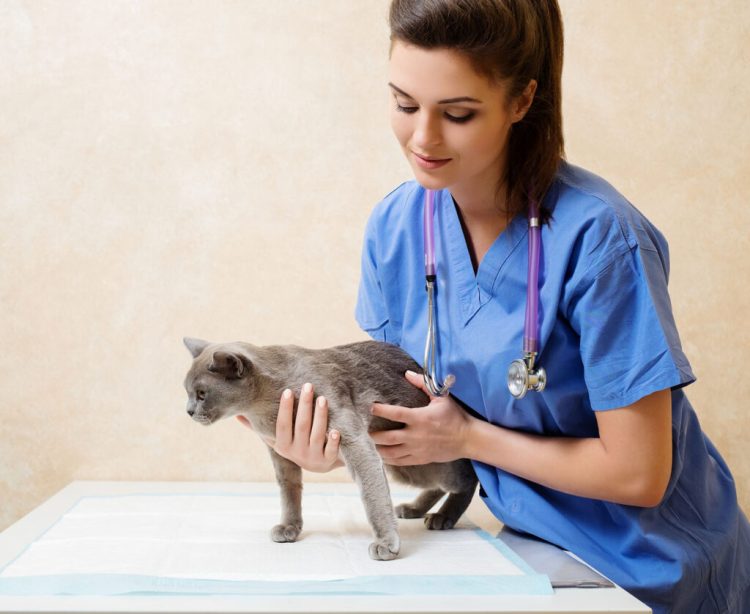Introduction:
As pet owners, we all want to see our furry companions happy, healthy, and full of energy. However, it can be disheartening when our pets seem to get sick frequently, and it may leave us wondering why this is happening and what we can do to help. Pets, like humans, can experience a range of health issues, and recurring illness can stem from a variety of causes. Whether it’s a chronic condition, underlying health problems, environmental factors, or improper care, understanding the root cause is crucial for finding an appropriate solution.
In this article, we will explore some of the common reasons why pets may frequently fall ill, the signs that should raise concern, and how to take proactive measures to ensure your pet stays healthy and happy.
1. Understanding the Common Causes of Frequent Illness in Pets
There are many potential reasons why a pet may fall ill frequently. Understanding the cause of their recurring health issues is key to finding the right treatment or preventative measures.
a. Poor Diet and Nutrition
One of the most common reasons for frequent illness in pets is poor nutrition. A diet that lacks essential nutrients can lead to a weakened immune system, making pets more susceptible to infections and illnesses. This is particularly true for pets that are fed low-quality commercial pet food that lacks the proper balance of proteins, fats, vitamins, and minerals.
- Symptoms: Weight loss, dull coat, lack of energy, gastrointestinal problems (vomiting, diarrhea), and frequent infections.
- Solution: Ensure that your pet is fed a balanced, high-quality diet tailored to their specific age, breed, and health needs. Consult your veterinarian to find the best food that supports your pet’s immune system and overall health.
b. Underlying Medical Conditions
Chronic illnesses or underlying medical conditions may contribute to frequent sickness in pets. Conditions such as kidney disease, diabetes, hypothyroidism, heart disease, and autoimmune disorders can cause recurrent health issues.
- Symptoms: Chronic lethargy, weight fluctuations, vomiting, excessive thirst or urination, or changes in behavior.
- Solution: Regular veterinary check-ups and diagnostic testing are essential in detecting underlying medical conditions early. Your vet can provide treatment plans to manage chronic conditions and improve your pet’s quality of life.
c. Allergies
Just like humans, pets can suffer from allergies to food, pollen, dust mites, mold, or environmental factors. Food allergies, in particular, can cause gastrointestinal issues, skin problems, and respiratory distress.
- Symptoms: Itchy skin, ear infections, vomiting, diarrhea, sneezing, or coughing.
- Solution: If you suspect your pet has allergies, consult with your veterinarian for an allergy test or an elimination diet to identify the trigger. Depending on the cause, medications, hypoallergenic diets, or environmental changes may be recommended.
d. Parasites and Infections
Parasites such as fleas, ticks, heartworms, and intestinal worms can lead to frequent illness in pets. These parasites not only cause discomfort but can also transmit dangerous diseases that affect your pet’s health. Similarly, bacterial or viral infections can make your pet sick on a regular basis.
- Symptoms: Lethargy, weight loss, vomiting, diarrhea, scratching, or coughing.
- Solution: Make sure your pet is on a regular parasite prevention plan, which includes flea and tick treatments, deworming, and heartworm prevention. Keep up with vaccinations to protect against common infectious diseases. If you suspect an infection or parasite infestation, visit your veterinarian for a thorough examination and treatment.
e. Environmental Stressors
Pets, particularly dogs and cats, can be sensitive to environmental changes. Stressors such as moving to a new home, changes in routine, loud noises, or the presence of new pets can affect their immune system and make them more prone to illness.
- Symptoms: Loss of appetite, behavioral changes, lethargy, or gastrointestinal upset.
- Solution: Try to minimize stressors by keeping a consistent routine and creating a calm, safe environment for your pet. If your pet shows signs of anxiety, consider consulting your veterinarian about behavioral training or medication options.
f. Age-Related Health Issues
Older pets are more prone to developing health problems that can cause frequent sickness. As pets age, their immune system weakens, and they may develop conditions like arthritis, dental disease, or cancer.
- Symptoms: Lameness, difficulty moving, weight loss, coughing, and changes in eating habits.
- Solution: Regular health check-ups are essential for aging pets to catch age-related health problems early. Senior pets may require specialized diets, supplements, and medications to manage conditions associated with aging.
2. Signs That Your Pet Needs Immediate Attention
It’s essential to recognize when your pet’s illness requires more urgent care. If your pet exhibits any of the following symptoms, seek veterinary attention immediately:
- Severe vomiting or diarrhea (especially if blood is present)
- Difficulty breathing or labored breathing
- Severe lethargy or collapse
- Sudden weight loss or lack of appetite
- Severe pain or limping
- Frequent coughing, sneezing, or nasal discharge
- Persistent itching or skin rashes
- Changes in urination or defecation habits
These symptoms may indicate a more serious health problem that requires immediate attention. Timely intervention can often prevent the condition from worsening and improve your pet’s chances of recovery.

3. Preventative Measures to Keep Your Pet Healthy
To reduce the chances of your pet getting sick frequently, it’s important to adopt preventative measures that support their overall health. Here are some tips to help keep your pet healthy:
a. Provide a Balanced, Nutrient-Rich Diet
Ensure your pet receives a well-balanced diet tailored to their life stage (puppy, adult, senior) and health condition. Choose high-quality pet food with the right balance of proteins, carbohydrates, fats, vitamins, and minerals. If your pet has specific dietary needs, work with your veterinarian to choose the best food.
b. Keep Up with Regular Veterinary Visits
Regular check-ups with the veterinarian are crucial for early detection of any health problems. Routine exams, blood work, and vaccinations can help catch issues early before they develop into more serious conditions. Regular health checks are particularly important for senior pets.
c. Maintain Parasite Prevention
Regularly administer flea, tick, and heartworm preventatives as recommended by your veterinarian. These parasites can transmit diseases that can make your pet sick, so preventing infestations is key to maintaining their health.
d. Vaccinate Your Pet
Vaccinations protect your pet from a variety of contagious diseases that can make them seriously ill. Keep up with your pet’s vaccination schedule, and consult your vet about the appropriate vaccines based on your pet’s age, lifestyle, and risk factors.
e. Monitor and Manage Stress
Stress can weaken your pet’s immune system and make them more susceptible to illness. Provide a calm, stable environment and ensure your pet has a routine for feeding, exercise, and playtime. Consider using calming aids such as pheromone diffusers or anxiety wraps if your pet is prone to stress.
f. Exercise and Mental Stimulation
Regular physical activity and mental stimulation are essential for keeping your pet healthy. Exercise helps maintain a healthy weight, supports joint health, and reduces the risk of obesity-related illnesses. Mental stimulation can prevent behavioral issues and reduce stress.
g. Dental Care
Dental health is often overlooked but is critical to your pet’s overall well-being. Poor dental hygiene can lead to periodontal disease, which can cause systemic infections affecting the heart, kidneys, and liver. Regular tooth brushing, dental chews, and professional cleanings can help maintain your pet’s dental health.
4. When to Seek Professional Help
If your pet continues to experience frequent sickness despite your best efforts to improve their diet and lifestyle, it’s important to seek professional help. A veterinarian can run diagnostic tests, conduct a thorough physical exam, and provide a treatment plan tailored to your pet’s unique needs.
If the condition is chronic, your vet may refer you to a specialist or recommend advanced diagnostic procedures such as X-rays, ultrasounds, or blood tests to uncover the underlying cause.
5. Conclusion: Taking Action for Your Pet’s Health
Frequent illness in pets can be frustrating and worrisome for pet owners, but by understanding the underlying causes, you can take proactive steps to improve their health. Regular veterinary care, a balanced diet, parasite prevention, and stress management are essential components of a healthy lifestyle for your pet. By identifying and addressing the cause of your pet’s illness, you can ensure they lead a long, happy, and healthy life.
If your pet continues to experience frequent sickness, it’s important to work closely with your veterinarian to determine the root cause and implement the appropriate solutions. With the right care, your pet can thrive and enjoy a higher quality of life.























































